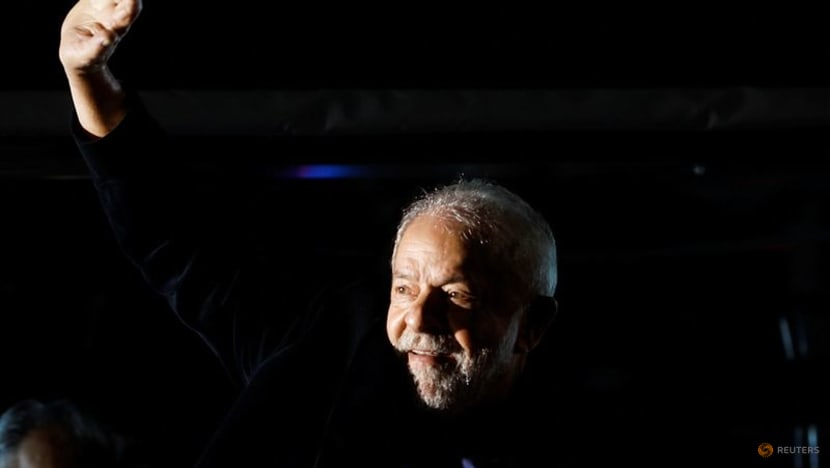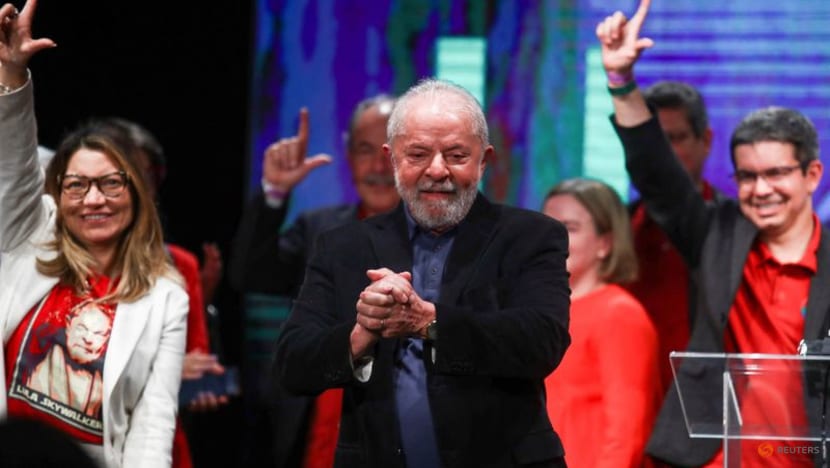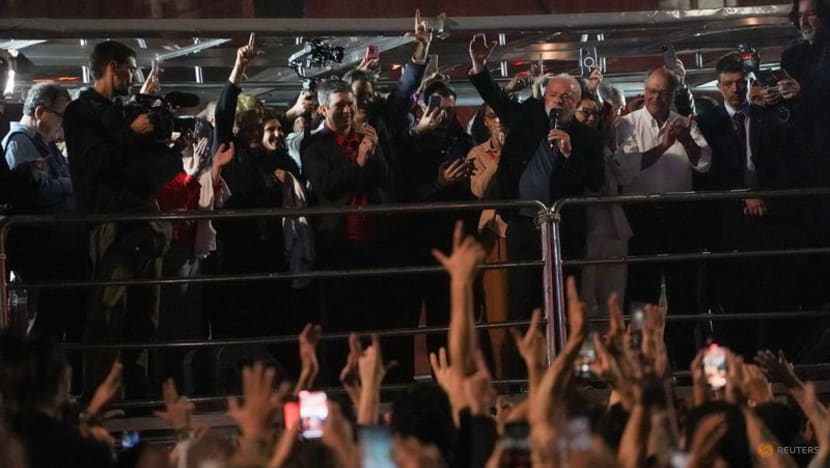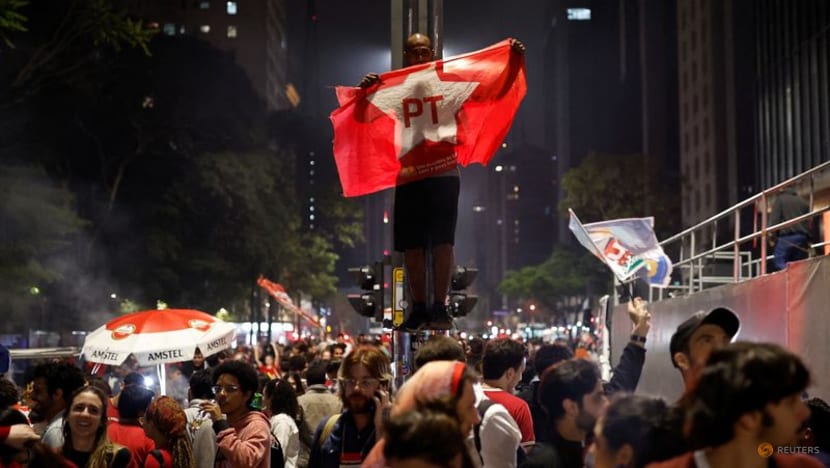Brazil girds for tense runoff vote after Bolsonaro's strong showing





RIO DE JANEIRO: Brazil's Jair Bolsonaro and his leftist rival Luiz Inacio Lula da Silva on Monday (Oct 3) buckled up for four more weeks of intense campaigning in the deeply divided nation, as the president's unexpectedly strong showing set up a tight Oct 30 runoff vote.
Lula, a two-term former president who was jailed on corruption convictions that were later overturned, won the most votes in Sunday's presidential election, and for many remains the favourite to be re-elected later this month.
But Bolsonaro's better-than-expected performance revitalised his campaign, giving credence to his claim that the pollsters were wrong to write him off in Brazil's most fraught election since the end of military rule in 1985.
The far-right leader's strong showing also prolonged questions about whether Brazil's democratic institutions will be able to stand up to his unfounded allegations that the country's voting system can't be trusted.
Walking her dog in Rio de Janeiro's Lagoa neighbourhood, Marcia Oliviera, 69, was outraged by how surveys misread Bolsonaro's support.
"The polling companies have zero credibility," she said, calling Lula a "crook, a thief, a snake charmer. I find it unbelievable that people could vote for him."
Most polling firms had given Lula a 10-15 point lead ahead of Sunday's vote, raising the possibility of a first-round victory for the leftist. But with 99.99 per cent of electronic votes counted, Lula had taken 48.4 per cent of votes versus 43.2 per cent for Bolsonaro, meaning that neither secured the over 50 per cent needed to avoid a run-off.
The remaining votes went to nine other candidates who are now eliminated from the race.
Bolsonaro's right-wing Liberal Party (PL) won 99 seats in the 513-member lower house, up from 77, and right-leaning parties allied with Bolsonaro now control half the chamber. PL candidates won 13 of the 27 seats up for grabs in the Senate, with two more possible in runoffs, a party spokesman said.
The result turbocharged Brazilian markets, on expectations that it may force Lula to move to the center and limit his room for dramatic policy changes even if he does finally triumph. Brazil's real strengthened roughly 3.5 per cent against the dollar in morning trading, while the Ibovespa stock index rose 4 per cent.
State-run companies led the gains on Brazil's main stock index, with shares in oil giant Petrobras and lender Banco do Brasil jumping about 8 per cent. Investors are betting that a potential second Bolsonaro term could see a wave of privatizations.
Support for distant third- and fourth-place finishers also fell short of recent surveys, suggesting some of their backers may have shifted to Bolsonaro when it came time to vote.
Attention will now turn to whom centrist Senator Simone Tebet and center-left former lawmaker Ciro Gomes will send their votes. Tebet won 4 per cent of votes, while Gomes secured 3 per cent. Both said on Sunday night they would announce decisions about endorsements in the coming days.
After his unexpected surge, many analysts said the electoral momentum was now with Bolsonaro. If he does pull off a dramatic comeback, it would break with a wave of victories for leftists across the region in recent years, including Mexico, Colombia, Argentina and Chile.
Capital Economics said in a note that Lula was still the favorite to be elected. But it said Bolsonaro and his allies' "surprisingly strong performance" will provide severe obstacles to governing Latin America's biggest country.
"That should help to temper fears of a sharp shift to the left," it wrote.
On Sunday night, Bolsonaro adopted a more statesmanlike tone that usual, expressing confidence that victory was within reach and avoiding his usual unfounded attacks on Brazil's voting system. In the run-up to the vote, he had made baseless allegations about the integrity of the electronic voting system and had suggested he may not concede if he loses.
"I plan to make the right political alliances to win this election," he told journalists, pointing to the significant advances his party made in Congress.
Lula put an optimistic spin on the result, saying he was looking forward to another month on the campaign trail and the chance to debate Bolsonaro head-to-head.
Inside his campaign, however, there was clear frustration that he had fallen short of the hoped-for outright win, as well as with weak results in state races outside of his party's traditional northeastern stronghold.
"There was a clear movement of votes in the southeast, beyond what the surveys and even the campaign managed to detect," a campaign source said on condition of anonymity.
"Clearly Bolsonarismo was underestimated," said Senator Humberto Costa, an ally of Lula's Workers Party.










